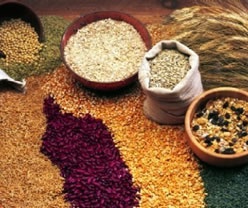
Simple actions by consumers and food retailers can dramatically cut the 1.3 billion tonnes of food lost or wasted each year and help shape a sustainable future.
This is part of a new global campaign to cut food waste launched by the Food and Agriculture Organization (FAO), the UN Environment Programme (UNEP) and partners.
It was contained in a statement issued by the Charmaine Wilkerson of the FAO Media Office in Rome and copied to the Ghana News Agency on Tuesday.
It said the “Think.Eat.Save: Reduce Your Food print campaign” is in support of the SAVE FOOD Initiative to reduce food loss and waste along the entire chain of food production and consumption - run by the FAO and trade fair organizer Messe Düsseldorf - and the UN Secretary General's Zero Hunger Initiatives.
The statement said the new campaign specifically targets food wasted by consumers, retailers and the hospitality industry.
It said the campaign harnesses the expertise of organizations such as Waste and Resources Action Programme (WRAP), feeding the 5,000 and other partners, including national governments, who have considerable experience targeting and changing wasteful practices.
“Think.Eat.Save. aims to accelerate action and provide a global vision and information-sharing portal for the many and diverse initiatives currently underway around the world,” it stated.
According to data released by FAO worldwide, about one-third of all food produced, worth around $1 trillion, gets lost or wasted in food production and consumption systems.
It reiterated that food loss occurs mostly at the production stages - harvesting, processing and distribution - while food waste typically takes place at the retailer and consumer end of the food-supply chain.
"In a world of seven billion people, set to grow to nine billion by 2050, wasting food makes no sense - economically, environmentally and ethically," it cited the United Nations Under-Secretary-General and United Nations Environmental Programme Executive Director Achim Steiner.
"Aside from the cost implications, all the land, water, fertilizers and labour needed to grow that food is wasted - not to mention the generation of greenhouse gas emissions produced by food decomposing on landfill and the transport of food that is ultimately thrown away.
“To bring about the vision of a truly sustainable world, we need a transformation in the way we produce and consume our natural resources," it added.